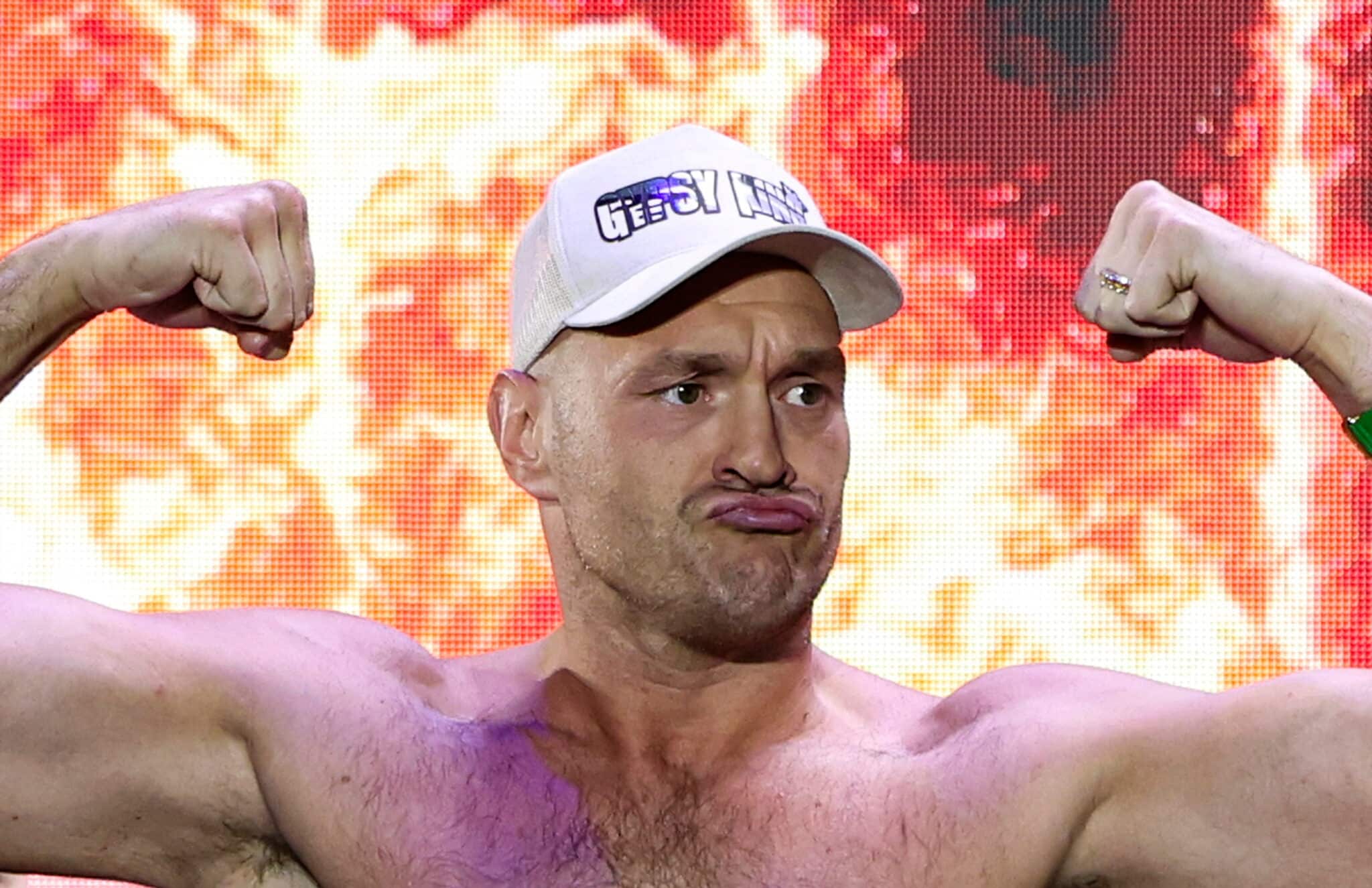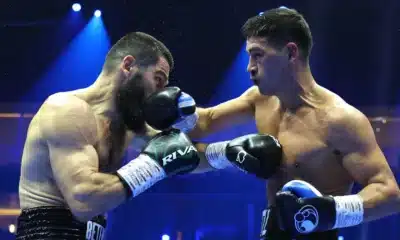
The former two-time heavyweight champion on Monday shocked the world, including his promoter Frank Warren, by announcing his retirement from the sweet science.
The 36-year-old great, who had conquered all comers in a Hall of Fame-worthy career, finally met his match in 2024 in the form of Oleksandr Usyk. The Ukrainian handed the Brit a stinging first loss by split decision in the first undisputed heavyweight title fight of the modern four-belt era in May and won the December rematch by unanimous decision.
“Hi everybody, I’m going to make this short and sweet,” Fury said. “I’d like to announce my retirement from boxing. It has been a blast, I’ve loved every single minute of it and I’m going to end with this; Dick Turpin wore a mask.”
An anomaly, Fury was a one-of-a-kind boxer, a towering six-foot-nine titan who moved like a cruiserweight. He was the total package; a towering tactician or a brutish bully depending on his mood and opponent, an entertainer who knew how to talk the talk and a showman who loved to burst out into song after a big victory.
He was a master of his craft, a monstrous maestro who, when required, used his range and ring IQ to fire away from the outside and, when conducive, turned into an apex predator who feasted on his foes with overwhelming power and pressure.
Fury put himself on the map when he stunned long-reigning champion Wladimir Klitschko in 2015 to win the WBA (Super), IBF, WBO, IBO, and The Ring heavyweight titles.
After over two-and-a-half years out of the ring, during which he battled mental health issues and contemplated suicide, Fury returned to action in 2018 and became a two-time champion by beating Deontay Wilder to claim the WBC belt in 2020.
His comeback transcends sport and is unlike any in boxing history, just like the fighter he is between the ropes. He’s taken it upon himself to be a champion for mental health awareness, speaking candidly and passionately about his battles with depression and addiction.
It’s the same incredible determination it took him to overcome his demons that saw him rise off the canvas after having fallen victim to a crushing combination from Wilder in the 12th round of their first fight.
In one of the most unbelievable moments in boxing lore, Fury got back up and took the fight to Wilder to finish the drawn epic encounter on a high note. He ended up winning the pair’s legendary trilogy convincingly by stopping the American in the next two meetings.
As it stands, Fury signed off with a spectacular record of 34 wins (24 by knockout), two losses and one draw. If this is the end, Fury has left a lasting legacy as the greatest British heavyweight of all time and one of the best boxers to ever lace up a pair of gloves.
However, it bears mentioning that we’ve been here before.
He’d previously announced his retirement after beating Dillian Whyte in April 2022 only to return six months later, so don’t be surprised to see Fury back in the ring, especially with one last blockbuster for the ages on the table.
Never before have two titans in the same orbit seemingly destined to fight each other taken what feels like forever to face off like Fury and fellow former two-time champion Anthony Joshua.
The much-anticipated clash has been discussed for years with negotiations falling through every time. Now that both men are out of the title picture for the time being, with Joshua having suffered a shock knockout loss to IBF titleholder Daniel Dubois in September, it’s the perfect time for the pair to meet inside the squared circle.
The battle of the legendary British behemoths will attract a purse of well over $100 million and while Fury already has a boatload of money, the fact that it’s also a legacy fight could see him make another swift comeback.
I’m definitely not convinced it’s the last we’ve seen from “The Gypsy King” in boxing.


























